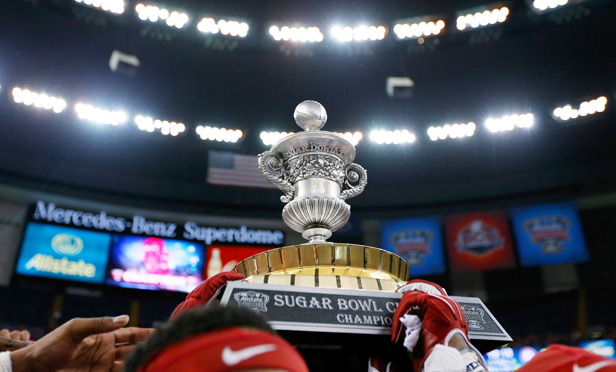With college bowl season upon us, The Am Law Daily decided to review the tax filings made by the nonprofits that stage the annual showcase events. After all, we care about lawyers, and in addition to rewarding the university athletic departments whose teams take the field, the games also yield legal work and plum positions for various attorneys.
This year’s slate of contests carries extra significance given that it marks the end of the much-maligned Bowl Championship Series era. Though the BCS may have boosted college football’s popularity and profitability, the consortium of powerful conferences also generated a fair amount of controversy on a range of issues, such as whether the BCS produced a true national champion.
Among the system’s most vocal opponents was former Utah Attorney General Mark Shurtleff, who repeatedly vowed to file an antitrust case against the BCS but ultimately never delivered on that promise. (Shurtleff, who had a brief stint at Troutman Sanders this year after leaving public office, later found himself grappling with his own legal issues.)
The Am Law Daily reported in 2012 on a Caplin & Drysdale–backed political action committee’s effort to scuttle the BCS system. The BCS battled back, hiring Hogan Lovells to lobby Congress on the creation of a college football playoff, an assignment that saw the firm take in $210,000 during the first three quarters of last year, according to U.S. Senate records.
Now, as a four-team college football playoff gets set to debut next season—and with six of the country’s most storied bowls set to rotate as hosts of the new championship game—The Am Law Daily sized up the lawyers with ties to the nonprofits that stage those events. While most of the board positions are unpaid, they are nonetheless high-profile, giving attorneys access to local business and civic leaders.
Chick-fil-A Bowl – Dec. 30, Atlanta – #21 Texas A&M v. #24 Duke






